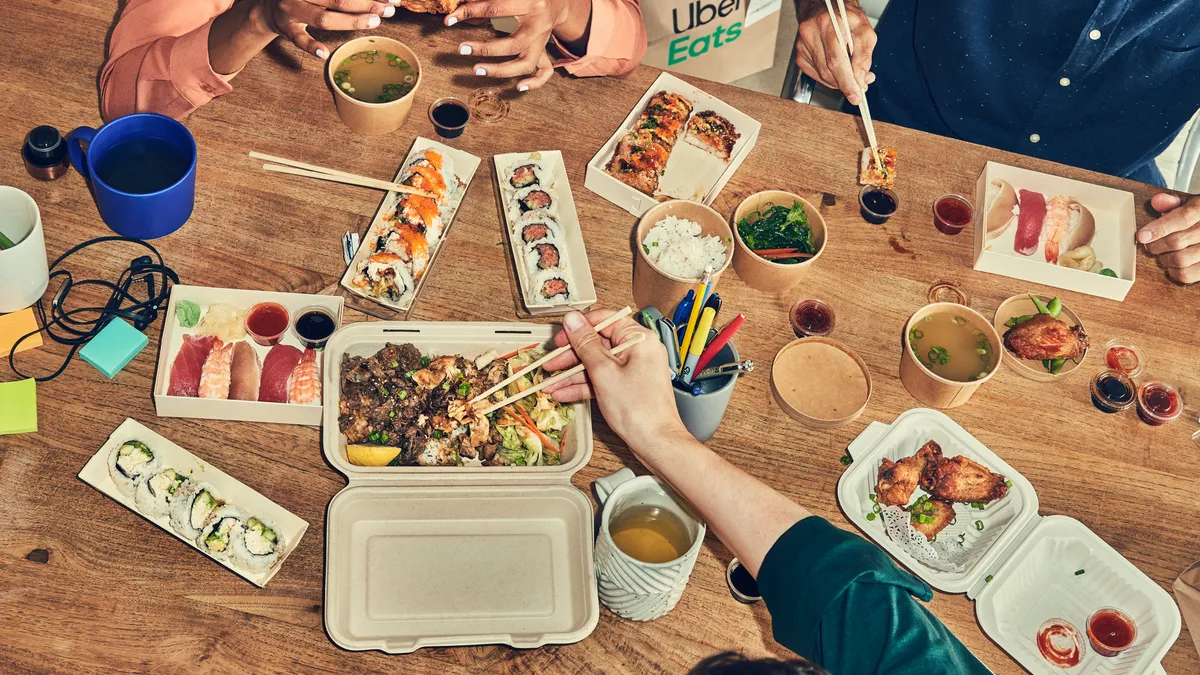Dive Brief:
- Uber Eats is relaunching its group ordering feature as states and cities eliminate pandemic restrictions. The company announced three new product features to support this relaunch Wednesday, including bill splitting, deadlines and auto-reminders. Uber's group ordering service first launched in 2019.
- To use the features, the "host" customer placing the order invites others to join the order and decides whether to pay or split the bill. Once a host creates a group order, they can set a checkout deadline up to seven days in advance. The app will also remind everyone in the group to order by the deadline.
- These enhancements are the latest in a string of new services and features added by Uber Eats. In November, Uber introduced a membership program to bundle delivery service and ride service, and the platform recently added a search feature just for takeout orders. It has also expanded into retail, grocery and alcohol delivery.
Dive Insight:
Uber Eats' group ordering enhancements prioritize the platform's core competency of restaurant delivery and streamlines the ordering process for customers.
In an email sent to Restaurant Dive, Uber claimed to be the first U.S. delivery app to allow customers to group order and split the bill. This could be an advantage as there seems to be a demand for bill-splitting options, as evidenced by apps like Splitwise, Venmo and GroupMe's Split. Facebook Messenger also recently launched a feature that allows customers to split the bill with their friends.
Notably, DoorDash began offering group ordering via mobile in 2017, allowing a host to start a group order cart while others add their items directly. DoorDash also added another group ordering feature in October 2020 called DoorDash for Work, which allowed employers to deliver food to their employees who were working remotely or in the office. The company continues to promote the feature on its website, calling it a "meal ordering platform for the modern workplace."
Grubhub offers group orders through its corporate accounts, where employees can place orders from pre-selected restaurants and each order arrives at the same time and is individually bagged.
Targeting personal gatherings sets Uber Eats apart from its competitors' workplace-focused offerings, and may even strengthen consumer loyalty, which tends to be elusive in the delivery space. Risk perceptions of gathering with friends and family have dropped since February, according to Axios/Ipsos, which could also prime consumers to use group ordering more often.













